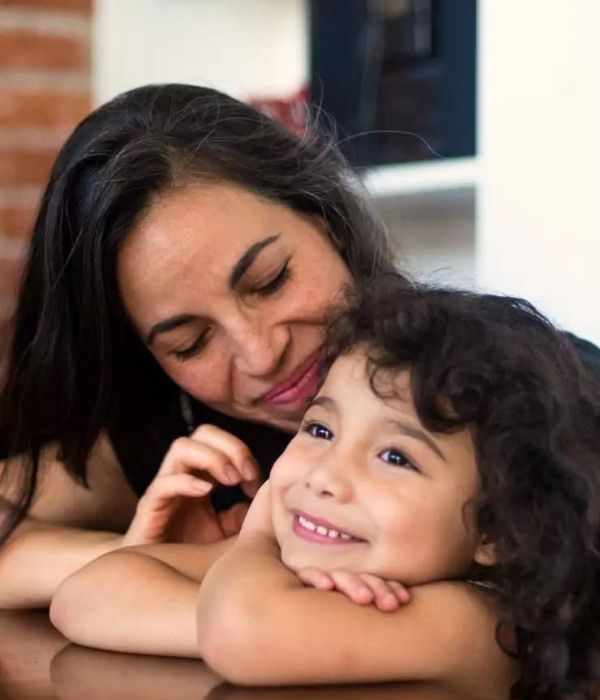
Congratulations on receiving your child’s first NDIS plan! 🎉 I know that it took a lot to get to this point, so please take a moment to give yourself the pat-on-the-back you deserve. Hopefully, there is someone in your life who will also tell you how amazing you are for all the hard work advocating to get your child the support they need, but if there isn’t let me be the first to say, “You are awesome. Now do something to acknowledge that awesomeness and celebrate this win.”

Your child’s journey is unique, and they deserve the right support to help them thrive. You’ve got this!
Once you are done celebrating, I understand that this can be an overwhelming time, filled with questions and uncertainties. Don’t worry; you’re not alone on this journey. One of the things you tend to find out as you enter the NDIS-participant-parent space, is that we are everywhere! To help you navigate this new chapter, I have put together an easy reading FAQ guide to address some common concerns parents might have after receiving their child’s first NDIS plan, from my experience as a parent with a child on their 6th NDIS plan, each year with a very varied experience.
What do all these acronyms mean?
If there is one thing NDIA love it’s an acronym that feels like you should understand it but don’t quite. Soon enough you will be rattling off these letter combinations IRL like a LOL or a ROFL or a TE (Total Expert – don’t worry if you didn’t know that one, I just made it up). I am not going to list them in alphabetical order, but in a predicted order of how many times you will stumble across them.
To find a list of these, please feel free to click on the button below to download your copy of our NDIS Acronym cheatsheet.
What do I do if I think the NDIS got the plan wrong?
Don’t panic! If you believe the NDIS plan doesn’t accurately reflect your child’s needs, reach out to your Local Area Coordinator (LAC) or NDIS representative. If you aren’t sure who that is, jump on the phone with your NDIS number at hand (or your child’s they can figure it out) and call 1800 800 110.
The NDIS does have a review process but this can take some time. The wait times for review now aim to be within 60 days with reasons provided in writing. While 60 days can feel long, in the early days it was much longer. My experience in the early years of NDIS was that when I issued the call for a review, by the time it came around I had already received a new and much better plan.
If you are concerned, start by calling the NDIS on 1800 800 110. Take notes and ask for a receipt number for the call. Trust your gut, if nothing else, you can always get more information to help you understand the decisions and plan for next year. The system, especially at the beginning can feel very confusing and the mysterious justifications of “reasonable” and “necessary” can feel like strange spell incantations pulled out to stun you into silence, just keep asking questions and taking notes, the more you ask, the more you learn and it’s ok to ask the same question over and over. Your mental load is big and understanding this whole new system is hard. Personally, when I am overwhelmed with it all I love hitting up the “easy read” versions of NDIS fact sheets. They skip all the wordy-legalese and just pull out the essential information.
If you think you’re not getting the right answers at the other end of the phone, it might be worth further exploring the NDIS website to find the written documentation to support further questioning and discussion as you advocate for your child.
That said, sometimes, I have decided not to pursue a particular ‘fight’ because when I have thought about the energy it required, I decided it would be easier to seek certain types of supports elsewhere. For example, when my daughter required a walker (at 5 years old I had been advocating for this through the NDIS for 2 years as she couldn’t walk independently) I decided to get creative and approached my local Lions Club instead. They happily funded it and we had the walker in just 2 weeks! Yes, maybe the NDIS ‘should’ have funded it, but sometimes you have to decide: do I let this one go, do I push through the system, or do I get creative and look for other opportunities for support.
How do I know what supports my child needs?
Understanding your child’s needs, and where to go to meet them can be a puzzle. Firstly, it’s important to take a breath and remember that your child is already awesome as they are and that no therapy is needed to “fix” them. There is a temptation to run out and do all of the things and sign up for everything, but this approach is often unsustainable and may lead you, and likely your child, into burn out.
I am not going to tell you not to google, because, as if. But make sure that you filter everything you read/hear/research through a lense of “what will meet the needs of our entire family both now and in the future?”
Start with what is most important to your family. For many families at this point it is the basics of sleeping, eating, communication and emotional regulation. So focus on looking into these areas of your family life and what supports you can find to assist. Talk to your child’s therapists, doctors, and teachers. They may be able to provide valuable insights into your child’s needs also. Consider your family rhythm and how your week ebbs and flows. It is likely not sustainable to do 7 different therapies 5 times a week for most families, so consider how small changes in your environment and small interventions can build towards longer-term goals over time.
Having a dedicated observations/ideas book, or note in your phone, is really handy for keeping track of what you are struggling with and when it takes place. Often by the time we have a minute to think, we have forgotten exactly what it was we were wanting to look more into, so keeping track of questions to ask therapists / other parents etc is a really handy practice.
How do I find out about local service providers and if they are a good fit for us?
You are obviously going to use online platforms, parent forums, and social media groups to connect with other parents. They often share their experiences and recommendations. But don’t forget that one person’s experience does not necessarily translate to another’s. Every child and family has their own unique circumstance and needs so while it’s really important to connect in with others, it’s also important to keep coming back to what is important to your child and your family. The only real way to find out is to go through this process. It is very much a “learn on the job” type of role. Additionally, don’t hesitate to visit potential service providers, ask questions, and get a feel for their environment. Trust your instincts – it’s important for both you and your child to feel comfortable. If a practitioner isn’t the right fit, don’t push yourself. Remember they are supposed to be supporting you as much as they are assisting your child.

How do I know when it’s time to change providers?
See above. Communication is vital. If you find that the current provider isn’t meeting your child’s needs or your expectations, have an open and honest conversation with them. Don’t lie about doing the home tasks if it’s too much, be honest about how you are coping and how your child is finding the therapy. Giving therapists feedback helps them improve not only for your child but also others, but that said, you have a lot on your plate. If you are exhausted and cannot deal with another awkward conversation, you are also within your rights to simply find a new provider. Remember, your child’s well-being is the priority, and finding the right fit might take some time. It’s ok if your friend thinks a therapist is fabulous but you can’t stand the way they work. You deserve to find someone who feels like a genuine fit.
How am I supposed to manage all of this?
Real talk. It’s really, really big. But somehow, you will find your way, because you can do hard things. Honestly, in the early days, while you are establishing yourself in this new role of ‘NDIS coordinator for your family’, it can be like taking on a whole new full-time job. Something else often has to give, so consider reaching out to friends and family and asking for their support, have the other adults in your life pick up some extra housework and cooking. The mental load of getting your head around all of this is huge, and it’s best if not carried alone.
If you don’t have a support network, you can reach out to Carer Gateway. Sadly this organisation is underfunded and not able to offer you the foot rubs, glasses of wine and boxes of chocolate that you deserve, but they may be able to link you in with some temporary support services while you get your head around a new family way of navigating things. Also, at some point you may get a time wrong or forget about an appointment. Don’t beat yourself up when it gets too much and you need a day off. No one therapy session is more important than your mental health.
What can I use my NDIS funding for, other than therapies for my child?
NDIS funding can be quite versatile! Besides therapies, funding may be used for assistive technology, home modifications, recreational activities, respite care, and skill development programs. They are also there to help to support the “informal supports” – that’s you! Trying to figure out what the NDIS will consider “reasonable and necessary” can be confusing, so when in doubt, call them! (And sometimes if you don’t like their answer, call back, getting a different person on the phone sometimes results in a different answer, and then jot down the receipt number for your call.) That way, if there are any issues after, you can quote back their call.

Remember, you are doing a super important job advocating for your child. Our society has a long way to go in supporting and recognising the value of carers and the importance of inclusion. If you sometimes feel disheartened, angry or frustrated, you are not alone. That said, the NDIS represents enormous progress and was a hard won battle fought for by families like yours. Your voice and your continued advocacy for the inclusion of your child is encouraging progress for all. The NDIS was designed to support families like yours, so don’t hesitate to reach out, ask questions, and explore the available resources. Your child’s journey is unique, and they deserve the right support to help them thrive. You’ve got this!
26 OCTOBER 2023

WRITTEN BY HOLLY KARTEN
ND PARENT | EDUCATOR
For more information on the topic of the NDIS please check out the following links:
Can I use NDIS funds for Therapy at Home programs?
Capacity or Core: Invoicing your NDIS buckets
Which Therapy at Home Program is suitable to support participants in achieving their goals?

